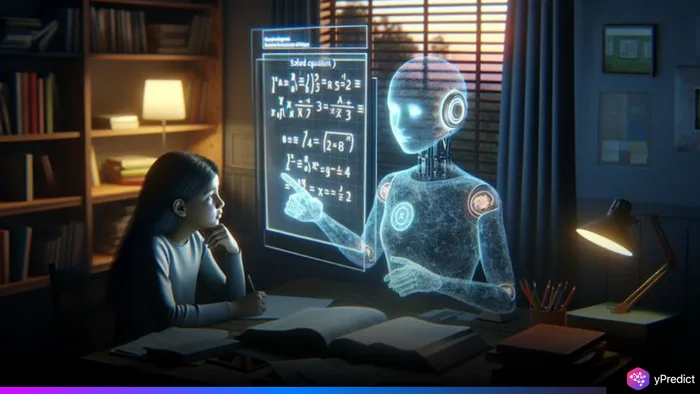
One-on-one tutoring has long been recognized as one of the most effective ways to boost student learning. But for most families, it remains out of reach, too expensive, too limited in availability. Now, a combination of artificial intelligence (AI) and charter school innovation may be about to change that.
AI Unlocks the Power of Scalable Tutoring
From ChatGPT-powered language practice in Italy to custom AI tutors in U.S. physics classrooms, emerging research shows that AI can significantly improve student outcomes. In one study from Harvard University, students taught by AI outperformed peers in instructor-led sessions, learning twice as much material in less time.
In another trial across middle schools in Pennsylvania and California, a hybrid AI-human tutoring model produced significant gains in math achievement, particularly among the lowest-performing students.
Even in the developing world, the impact is promising. Rising Academies, an African private school network, introduced Rori, a Claude-powered math tutor, and Tari, a teacher support AI. Students who used Rori just one hour per week over eight months showed learning gains equivalent to an entire year of schooling.
Why Charter Schools Are Leading the AI Tutoring Revolution
Despite these early successes, mainstream adoption of AI tutors faces institutional resistance. Traditional public school systems are often hamstrung by bureaucracy and rigid structures that make experimentation difficult.
This is where charter schools come in. Operated with greater flexibility, they serve as innovation labs for testing what works. As public institutions, charters cannot charge tuition or selectively enroll students, which means their AI experiments generate widely applicable data across diverse student populations.
According to the U.S. Department of Education and Arizona State University’s Center on Reinventing Public Education, charter schools are consistently more innovative than their traditional counterparts, especially in adopting new teaching technologies.
Not a Silver Bullet, But a Scalable Solution
No one suggests that AI tutors will replace skilled educators. Well-designed human-machine partnerships appear to be the most effective approach.
Still, success depends on careful design, implementation, and iteration, which makes the flexible structure of charter schools ideal for discovering best practices. Innovations that thrive in charter environments can then be scaled into public school systems, while failed experiments still offer valuable lessons.
Conclusion
As artificial intelligence alters the future of education, charter schools could be the optimal setting to experiment, iterate, and broaden access to personalized tutoring. There is a good chance that AI could expand access to a form of personalized tutoring while lowering costs. AI tutoring products may help to democratize learning and empower students regardless of income or location.
There is no doubt that the future may be experimental, but we know that the combination of AI and innovative educational practices could significantly change how students learn and how well they learn.






